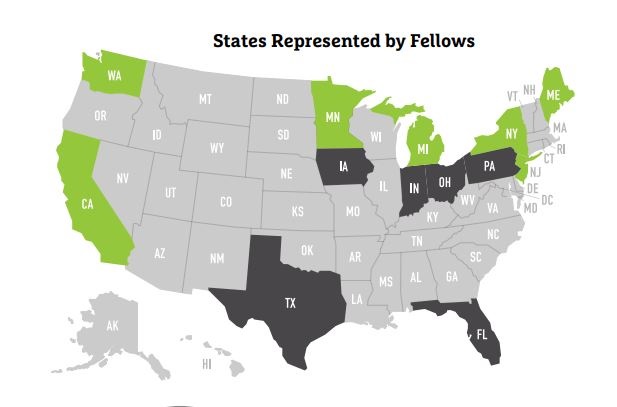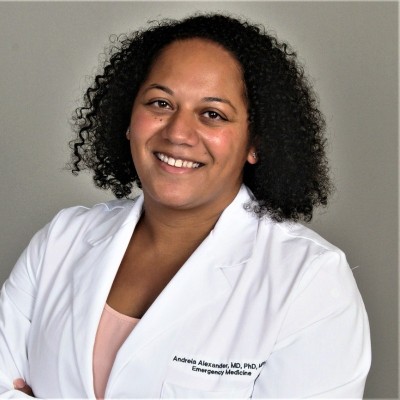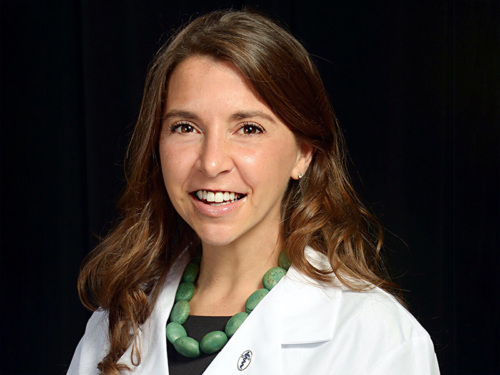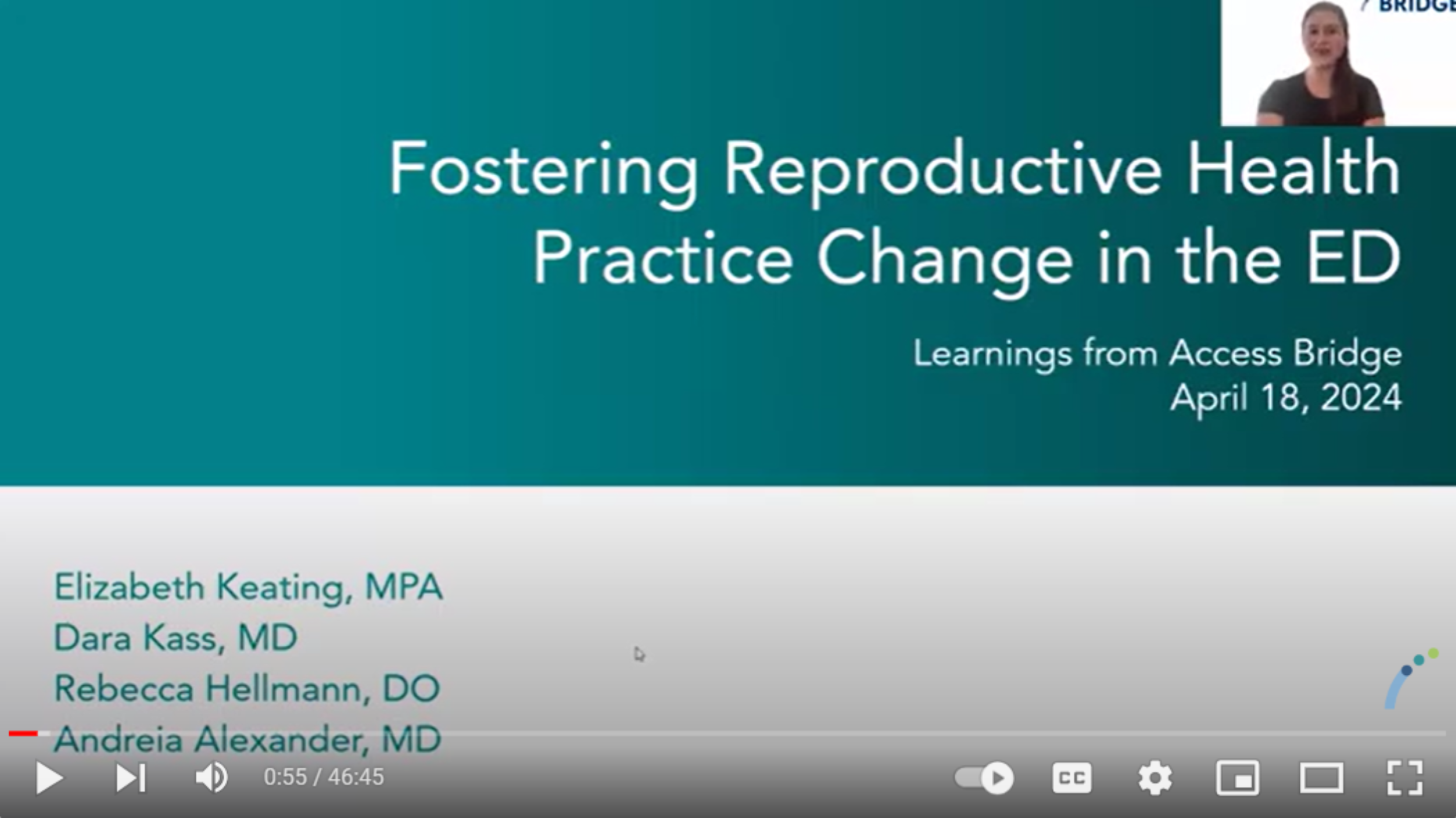Access Bridge Fellowship Increases Access to Life-Saving Reproductive Health Care through Emergency Departments
Program
Highlights

In 2023, Access Bridge launched a fellowship with 22 clinicians working in 19 hospitals across 13 states, including Florida, Indiana, Ohio and Texas—providing fellows with tools and support to implement core reproductive health services in their emergency departments
22 clinicians participating in the Access Bridge fellowship in its inaugual launch year
19 hospitals across 13 states where fellows are located
Emergency department (ED) clinicians have traditionally received minimal training in reproductive healthcare. This lack of training, coupled with legal uncertainties surrounding reproductive care, can lead to hesitation in providing even basic services. This is particularly concerning considering nearly one million people visit EDs annually with pregnancy-related complications and other reproductive needs. Existing racial and socioeconomic disparities also mean people of color often face greater barriers in addressing this essential care.
PHI’s Access Bridge fills critical gaps in reproductive health care in EDs across the United States, helping to improve access to evidence-based reproductive health services and increase health equity by building the capacity of EDs to serve as reproductive health safety nets, focusing on communities with limited access.
 In 2023, Access Bridge launched a fellowship with 22 clinicians working in 19 hospitals across 13 states, providing fellows with tools, resources and support to implement core reproductive health services in their EDs. Fellows are located in Florida, Indiana, Ohio, Texas, Iowa, Maine, Michigan, Minnesota, Pennsylvania, California, New Jersey, New York and Washington.
In 2023, Access Bridge launched a fellowship with 22 clinicians working in 19 hospitals across 13 states, providing fellows with tools, resources and support to implement core reproductive health services in their EDs. Fellows are located in Florida, Indiana, Ohio, Texas, Iowa, Maine, Michigan, Minnesota, Pennsylvania, California, New Jersey, New York and Washington.
Impact at Six Months: Changing ED Culture & Capacity
In the first six months of the yearlong program, fellows and hospitals reported the following impacts:
- 18 out of 19 hospitals have at least one drug for miscarriage management, mifepristone and/or misoprostol available at their hospital. They are working on integrating their provision for miscarriage (early pregnancy loss) into ED workflows (an increase of five hospitals from a baseline of 13).
- 13 out of 19 hospitals have at least one drug for emergency contraception, Ella and/or Plan B available at their hospital. Physicians from the remaining five hospitals are working to connect with their respective pharmacies and OB/GYNs to move forward with an emergency contraception provision.
- 10 out of 19 hospitals have at least one prescription contraception option (pills, patches, or rings) available to prescribe to patients.
Fellows receive comprehensive training on how to build culture change in their EDs through facilitated virtual meetings, peer-to-peer expert coaching and comprehensive resource-sharing. Topics included Miscarriage management; EC counseling and provision; Contraception 101; Role of Community Health Workers (CHWs) in Contraception and Preconception Counseling; and Medication abortion in the ED.

Clinical Guides: ED Management of Early Pregnancy Loss & Contraceptive Care
In the first six months of the program, Access Bridge developed easy-to-read one-page resources on ED protocols for miscarriage (early pregnancy loss). The protocols cover all clinical settings, including in states where mifepristone is unavailable. Access Bridge also produced resources for hospital champions to newly acquire these medications, and developed a quick-start protocol for contraception and emergency contraception provision from the ED.

One thing that Bridge did for me is they made their [protocols for contraception initiation in the ED] more simplified and easier for our emergency physicians to follow... it allowed me to streamline [the resources] and take those protocols to my medical director and IT... so that our emergency physicians can just pull up the information.Dr. Andreia Alexander, MD, PHD, MPH
Assistant Professor of Emergency Medicine; Associate Program Director for the Emergency Medicine Residency; Co-Director of the GME Health Equity Pathway, Indiana University School of Medicine
Physician fellows also reported that Access Bridge trainings, meetings and grand round slides are essential components of their education through the program:
- 19 out of 22 reported the fellowship was critical to expanding the provision of medication for miscarriage and contraception in their respective EDs
- 21 out of 22 reported the fellowship meetings are “extremely useful” to them.
- 19 out of 22 reported that sample slide decks were “extremely useful” to them.
- All 22 reported they would recommend this fellowship to a peer.
During their participation with the Access Bridge program, fellows also published Op-Eds and national interviews on how abortion restrictions affect emergency medicine patients; won a research competition for a poster depicting the benefits of ED-based miscarriage treatment; initiated medication abortion from an ED; and brought a free vending machine with over-the-counter products, including emergency contraception, to an ED waiting room.

When I started this fellowship, I was really looking for the language and assistance with the knowledge base... not only for my own personal practice but also to be able to teach residents in a way that I didn't get taught—to be able to give them an education for when they are out practicing in the community, to fill the gaps that exist in residency education for women's reproductive health in the emergency department.Dr. Rebecca Hellmann
Emergency Medicine Physician, Hackensack University Medical Center at Hackensack Meridian Health

In April 2024, Access Bridge shared progress of its fellowship program in expanding reproductive health care in emergency departments across various states, including those with restrictions. This webinar explores the program’s impact and future vision to bolster the capacity of emergency departments to provide evidence-based sexual and reproductive health services for patients and families.
Work With Us
You change the world. We do the rest. Explore fiscal sponsorship at PHI.
Support Us
Together, we can accelerate our response to public health’s most critical issues.
Find Employment
Begin your career at the Public Health Institute.
